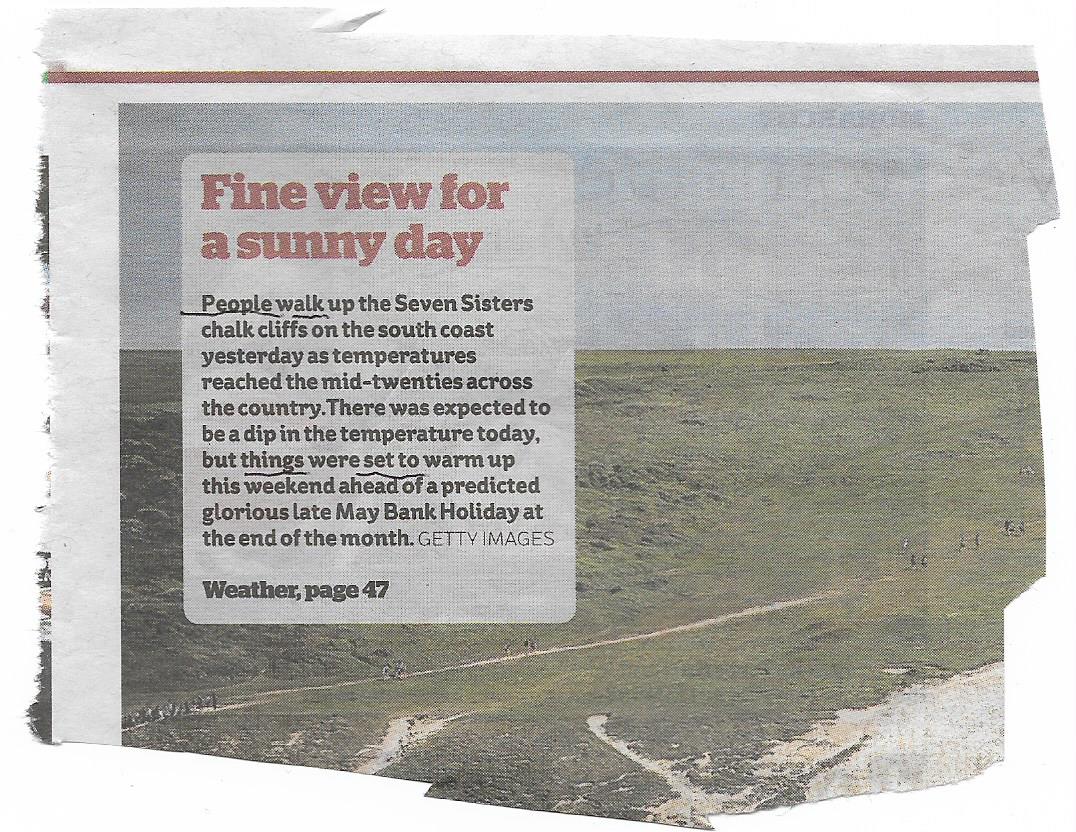 i newspaper, May 16, 2018
i newspaper, May 16, 2018
(54 words) ‘People’ must be one of the most used words in the media, yet unless told otherwise you can assume any story is about human beings, not giraffes or cockroaches. It is much better to come up with a more focused word, in this case ‘walkers’, perhaps, or ‘ramblers’. If you are talking about a number of people, you can often do without the word altogether, for example ‘The hurricane, which killed 200 in Haiti, made landfall in the US at Miami’.
I don’t like captions which mix the present tense (‘walk’) with the past (‘yesterday’). Often you can get round that by using the continuous ‘walking’, which here would be ‘People walking up the Seven Sisters cliffs yesterday . . . ‘
The south coast is long. How about saying ‘East Sussex’?
Temperatures did not reach the mid-twenties ‘across the country’. Here in Lancashire the maximum was 18 or 19. (It is a constant irritation that newspapers talk about heatwaves and cold spells according to the weather outside their London offices. There is a lot more of the country.)
‘Things’ and ‘set to’ are both awful.
Here is a better way of doing it, which avoids repeating ‘temperature’:
Temperatures reaching the mid-twenties drew walkers to the Seven Sisters chalk cliffs in East Sussex yesterday. It was expected to be less warm today, but the forecast is for a steady climb from the weekend ahead of a glorious bank holiday at the end of the month. (47 words)
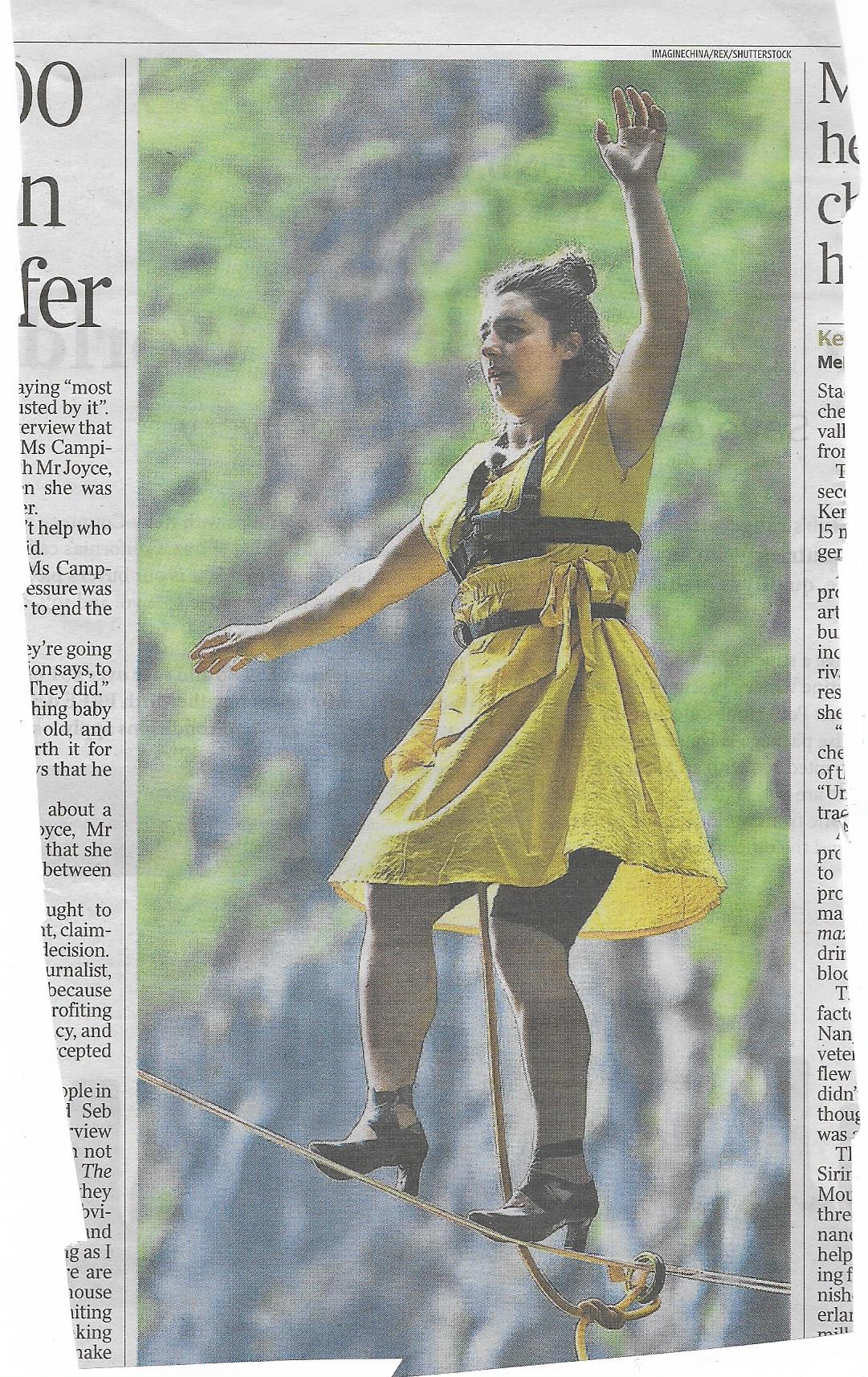
 The Times, May 30, 2018
The Times, May 30, 2018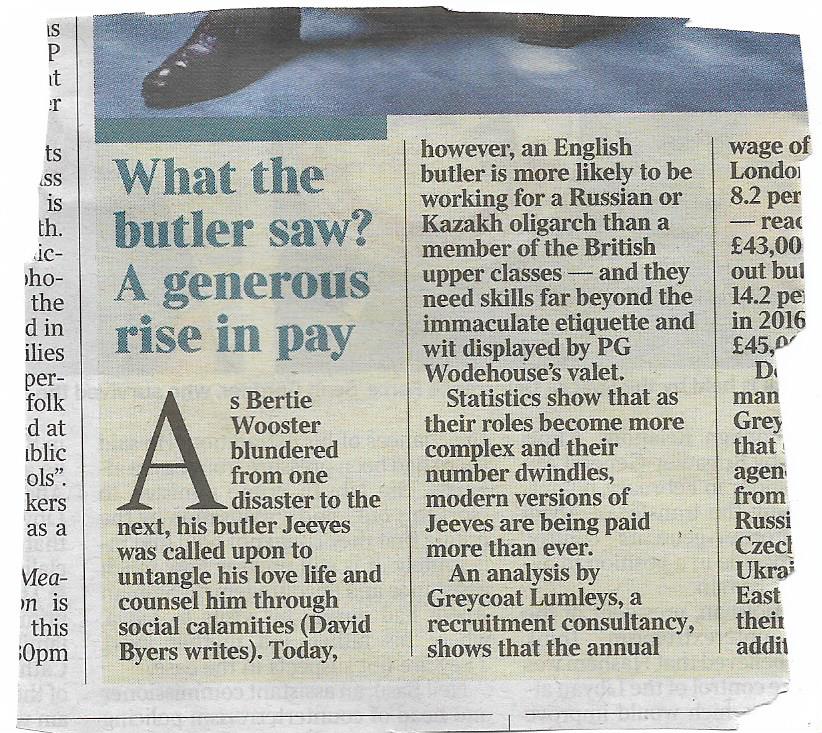
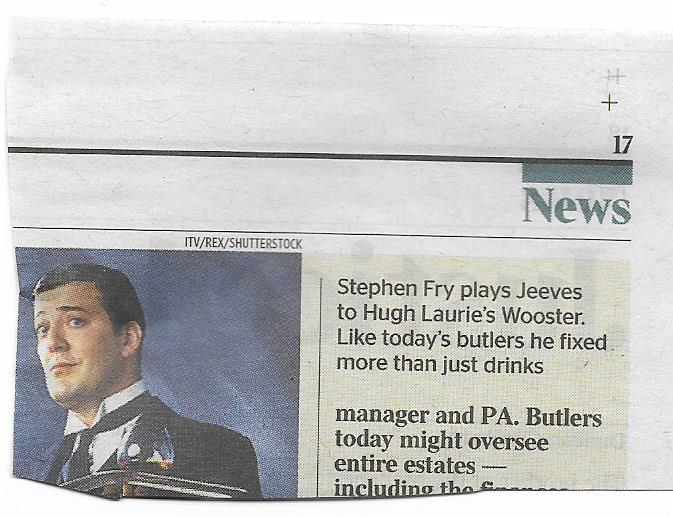 The Times, May 22, 2018
The Times, May 22, 2018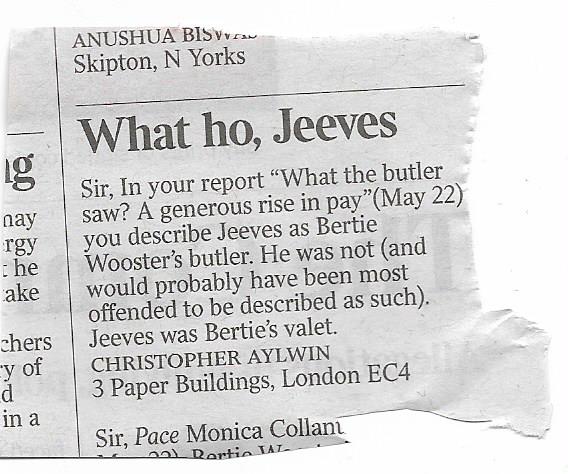 The Times, May 23, 2018
The Times, May 23, 2018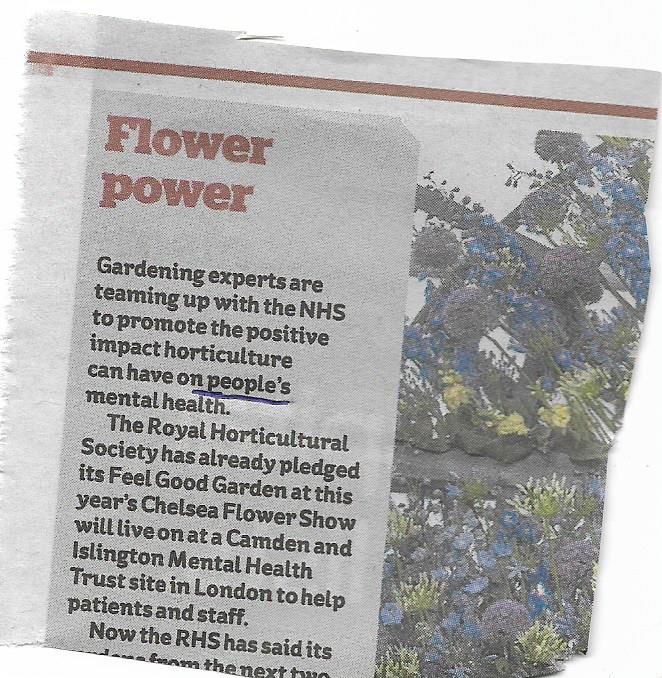 i newspaper, May 21, 2018
i newspaper, May 21, 2018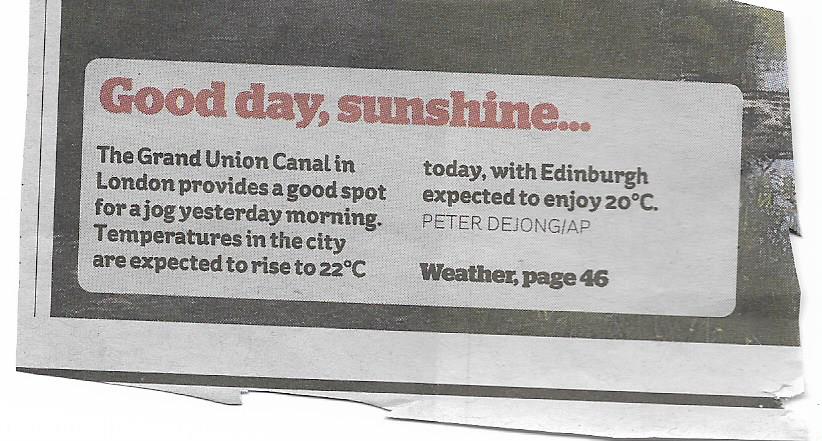 i newspaper, May 21, 2018
i newspaper, May 21, 2018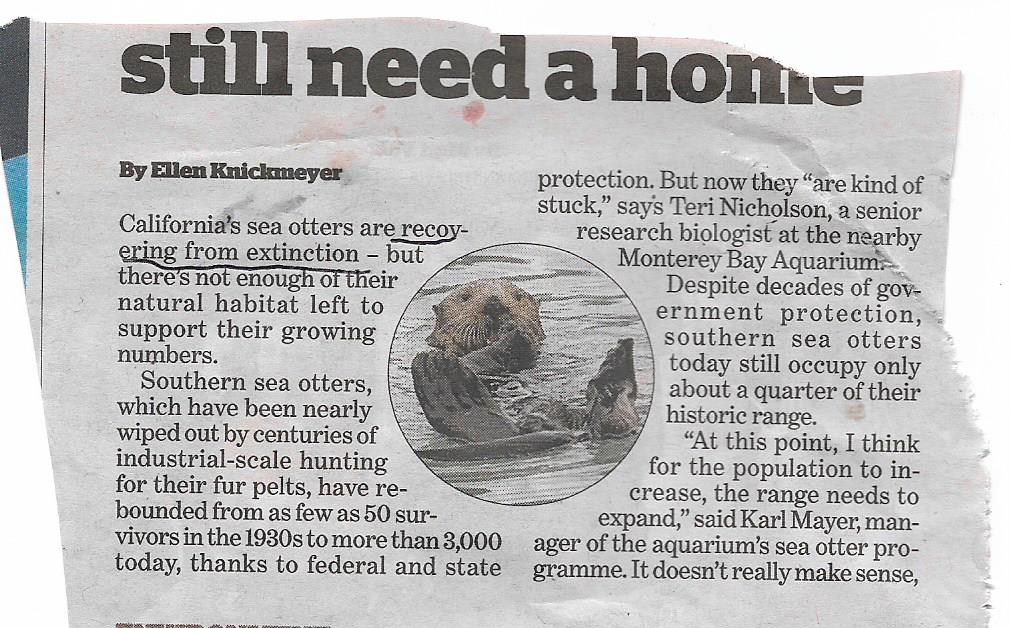 i newspaper, May 18, 2018
i newspaper, May 18, 2018 i newspaper, May 16, 2018
i newspaper, May 16, 2018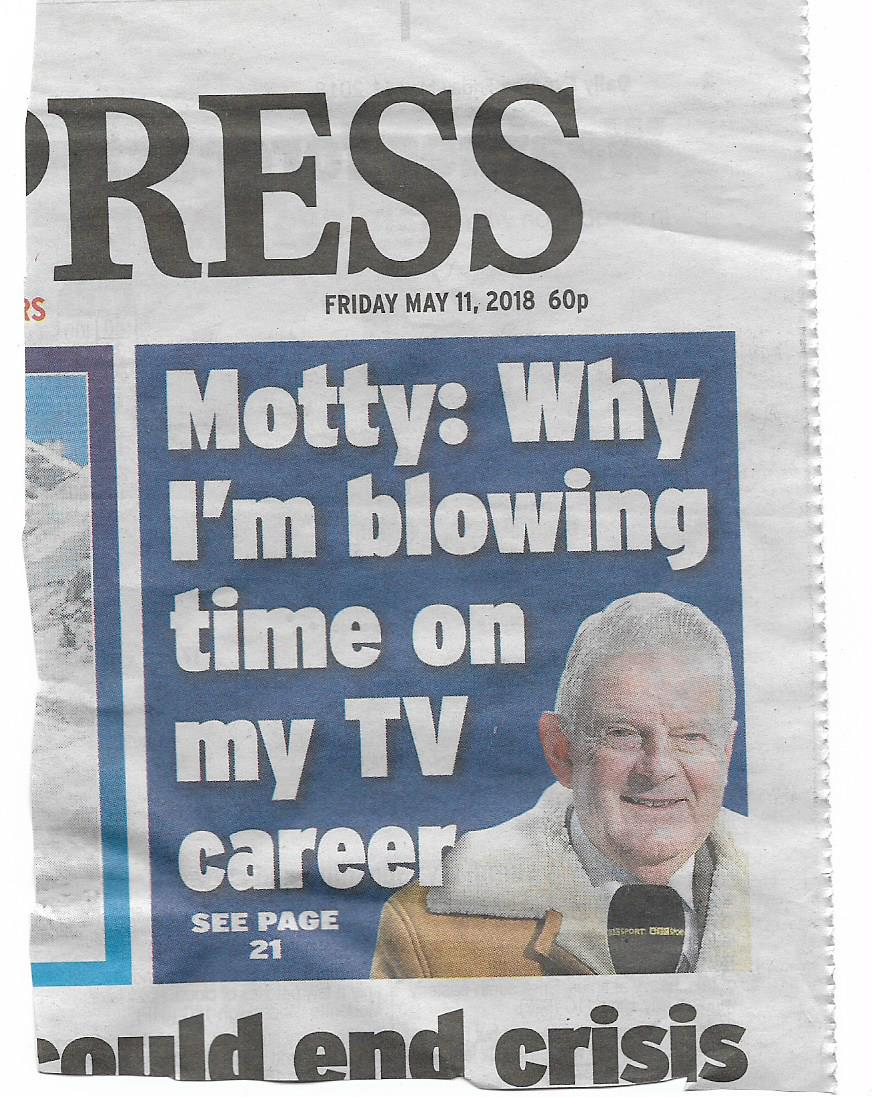 Daily Express, May 11, 2018
Daily Express, May 11, 2018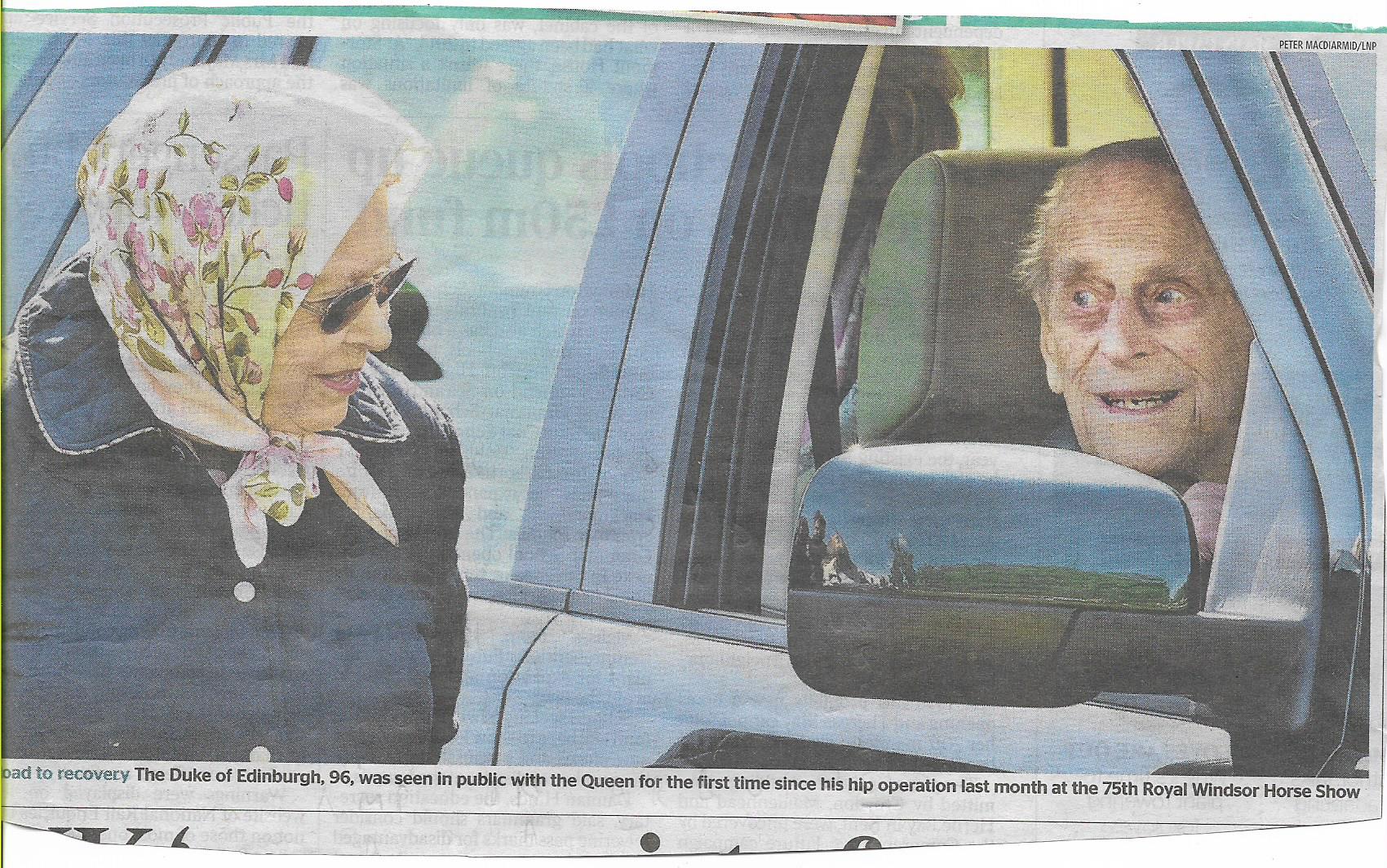 The Times, May 12, 2018
The Times, May 12, 2018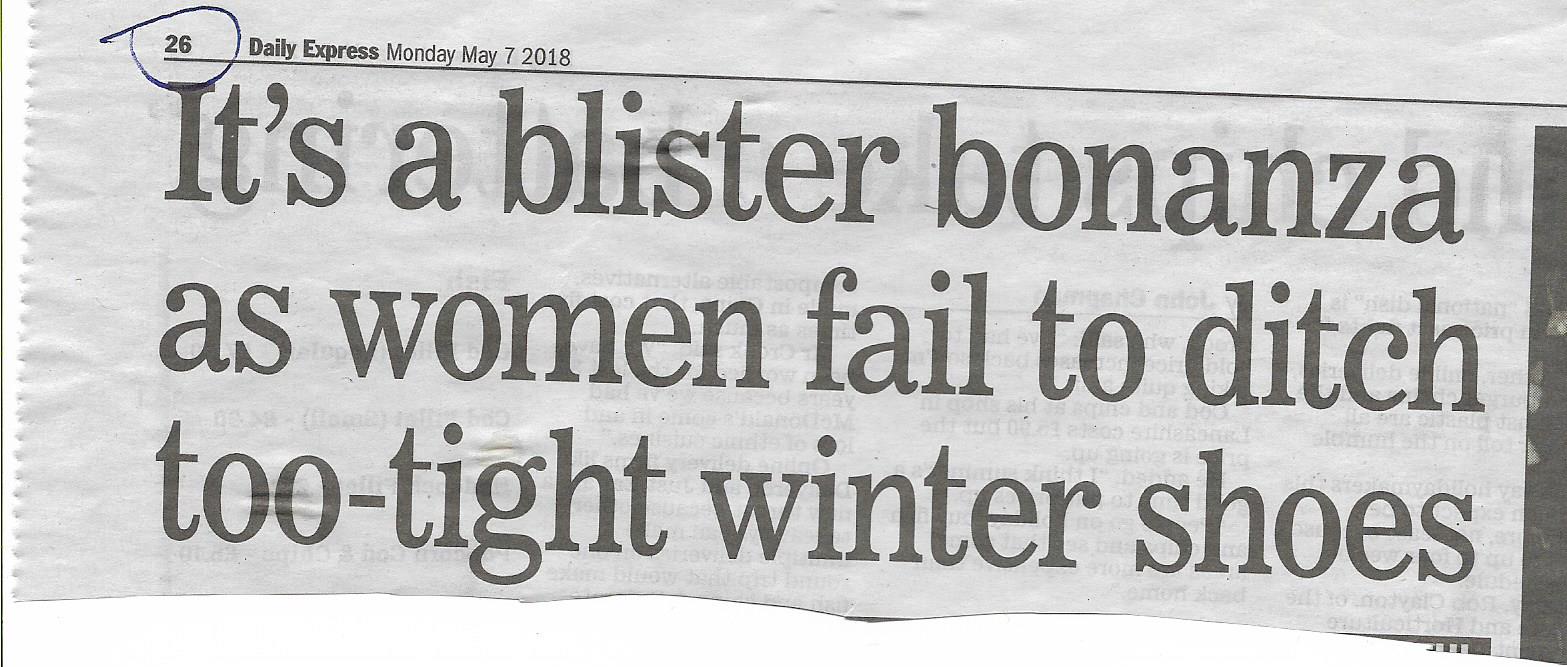 Daily Express, May 7, 2018
Daily Express, May 7, 2018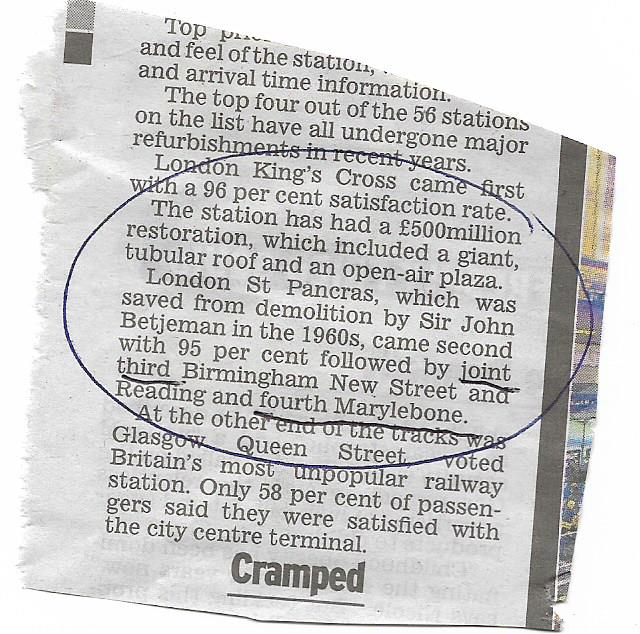 Daily Express, May 7, 2018
Daily Express, May 7, 2018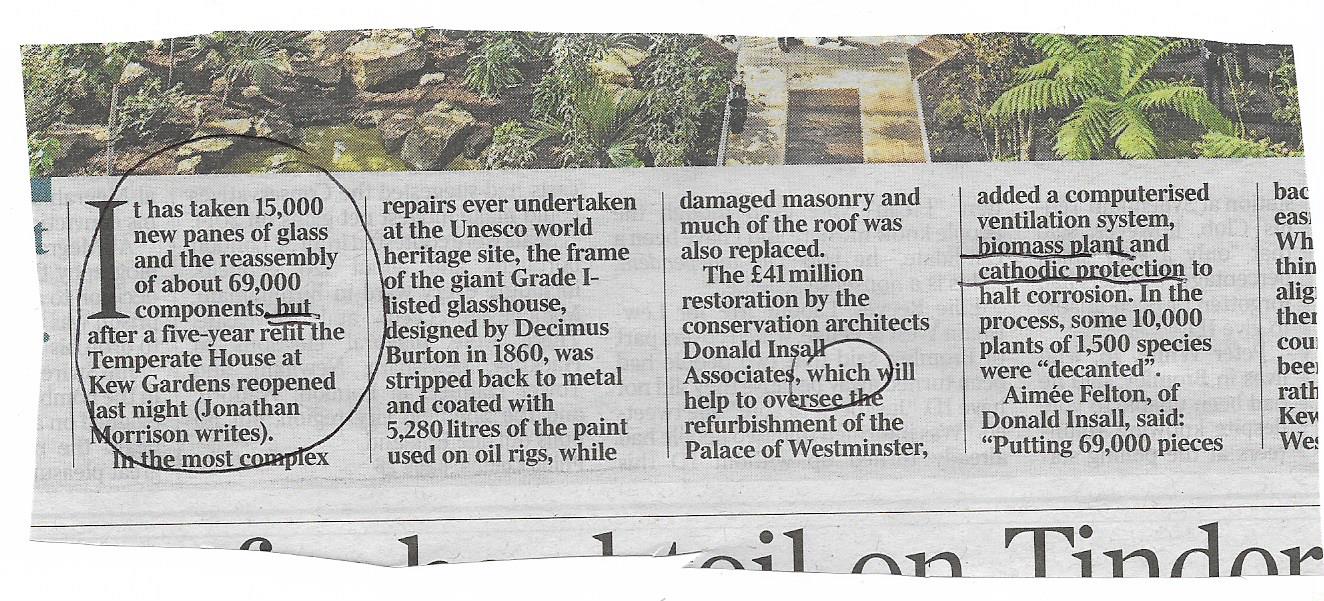 The Times, May 4, 2018
The Times, May 4, 2018